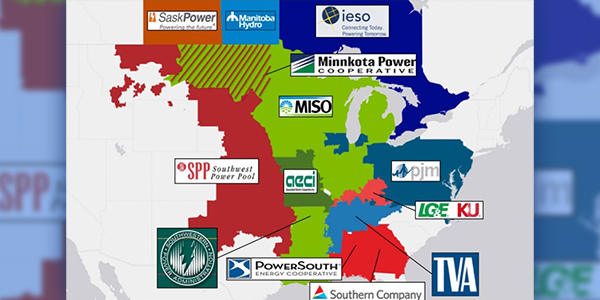FERC has reconsidered an aspect of recent orders calling for more transparency into how RTOs analyze each other’s systems during interconnection studies.
The commission on Thursday walked back a portion of an earlier ruling, saying MISO, SPP and PJM don’t have to rely on one another’s dispatch assumptions to carry out an affected-system study (ER20-942-001, ER20-938-002).
FERC ruled last September that the RTOs’ joint operating agreements do not provide enough clarity on how they handle generator interconnection studies along their seams. The commission in June ordered joint compliance filings to provide clearer descriptions of affected-system studies carried out for interconnecting generation. (See FERC Orders More Detail in Affected Systems Compliance.)
The commission in June found that an affected-system study using different dispatch assumptions than a project’s host RTO may result in unjust and unreasonable rates through network upgrade cost assignments.
But on Thursday, FERC said it was too hasty in directing the use of another RTO’s dispatch assumptions in affected-system studies. It even flipped its stance and said that if the RTOs were to use one another’s fuel-based dispatch assumptions in study modeling, the results might produce unreasonable rates.
“Upon reconsideration, we are persuaded by the arguments raised on rehearing that the commission should not have directed the affected-system RTO to use the dispatch assumptions of the host RTO when it conducts affected-system studies,” FERC said.
It agreed with MISO, SPP and PJM that an RTO’s study process is too complicated to simply cut and paste dispatch assumptions.
“Each RTO’s fuel-based dispatch assumptions are an integrated component of their larger interconnection and planning models, and more specifically, their corresponding base cases, which are different for each RTO, and in some cases use different load assumptions. We agree with [MISO, SPP and PJM] that these fuel-based dispatch assumptions are not logically severable from the framework in which they were developed, and in many cases, are not compatible with the affected-system RTO’s processes,” the commission said.





